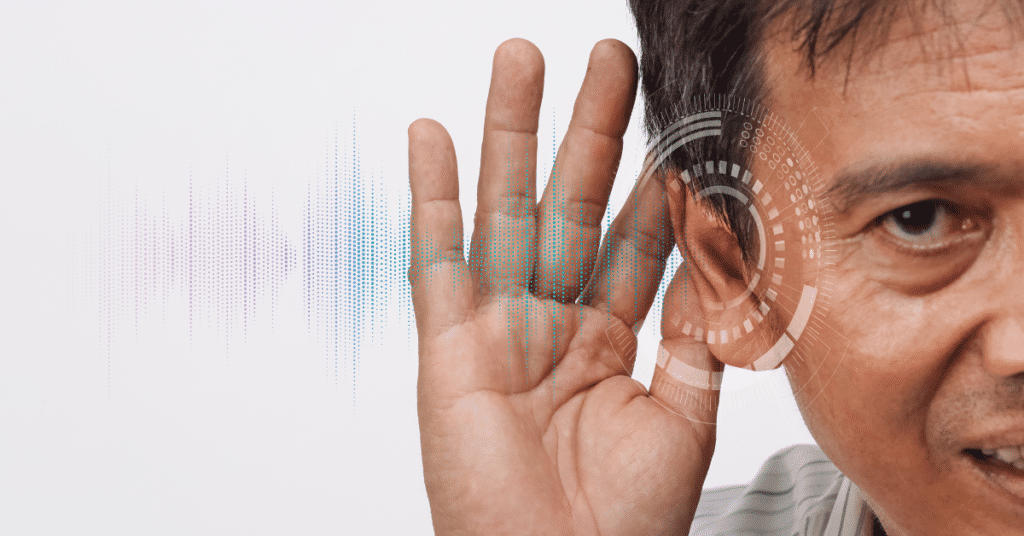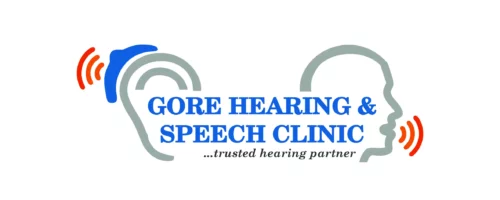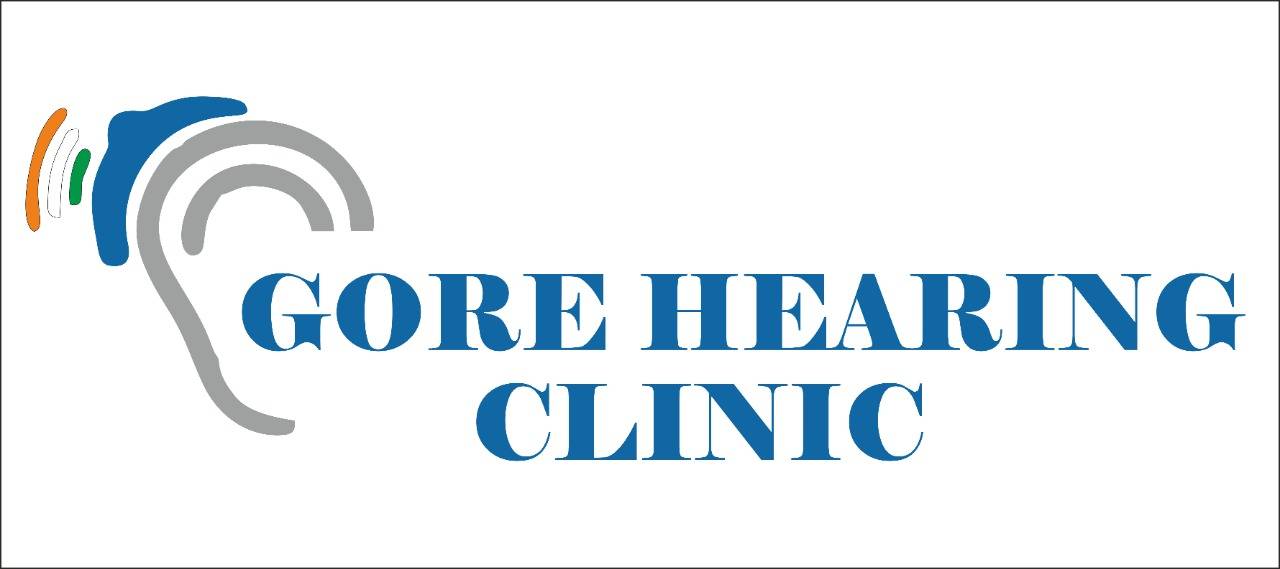Have you found yourself turning up the volume of the television louder than usual? Do the folks around you appear to be speaking excessively or not pronouncing words clearly? You could be having trouble hearing.
There are numerous causes, and although it can affect anyone at any age, it most frequently affects those over the age of 60. In medicine, hearing loss in older people is referred to as presbycusis.
How frequent is it? According to the World Health Organization’s (WHO) assessments, about 63 million people in India experience significant auditory impairment, resulting in an estimated prevalence of 6.3% among the Indian population.

it’s important to note that if you suspect you or a loved one may be experiencing hearing loss, it’s advisable to visit a hearing aid specialist. These professionals can provide a comprehensive hearing evaluation, discuss treatment options such as hearing aids, and provide ongoing support and care for individuals with hearing loss. By seeking the expertise of a hearing aid specialist, you can improve your quality of life and reduce the negative impact that hearing loss can have on your daily activities and relationships.
What is hearing loss?
Loud noises, getting older, getting sick, and genetic differences are all typical causes of hearing loss. Age-related increases in the likelihood of hearing loss cause about one-third of older persons to experience it. Talking to friends and family can be challenging for people who suffer from hearing loss. Also, they can struggle to hear doorbells and alarms, comprehend a doctor’s instructions, or react to warnings.
All ages are affected by hearing loss, which has many diverse causes. Sensorineural hearing loss, conductive hearing loss, and mixed hearing loss are the three fundamental types of hearing loss.
Hearing loss is often described as follows:
- Normal = less than 25 dB HL
- Mild = 25-40 dB HL
- Moderate = 41-55 dB HL
- Severe = 56-90 dB HL
- Profound = more than 90 dB HL
What causes hearing loss?
The following are additional risk factors that increase your risk of hearing loss:
- Congenital illnesses like cytomegalovirus (CMV).
- Strokes, high blood pressure (hypertension), and coronary artery disease.
- Even something as straightforward as sticking a cotton swab too far into the ear might cause damage or pain.
- Diabetes.
- Ear infections, earwax accumulation, or an eardrum rupture.
- Chemical exposure.
- Hearing loss in the family.
- Drugs for the treatment of cancer
What are the symptoms of hearing loss?
Loss of hearing can develop gradually. You might not even be aware that your hearing is lost. Most people who lose their hearing don’t experience any pain. Instead, you might observe that:
- Ask to speak several times in a row.
- Having trouble following conversations, especially over the phone or at a restaurant, or believing that other people are mumbling.
- Cannot hear certain high-pitched noises, such as bird songs.
- Need to increase the radio or TV’s loudness.
- You can feel pressure, a fluid sensation, ear pain, ringing in the ears (tinnitus), or earache.
- Having experience balance issues.
Among the warning signs of hearing loss in youngsters are:
- Not being startled by loud noises.
- Avoid turning when you speak the child’s name or hear sounds (after a child is 6 months of age).
Addressing some sounds but not all.
What are the different types of hearing loss?
There are basically four types of hearing loss :
1. Conducting hearing loss
Hearing loss is brought on by something that prevents sound from passing through the middle or outer ear. Surgery or medication is frequently used to treat this type of hearing loss.
2. Sensorineural hearing loss
Loss of hearing results from issues with the inner ear or the hearing nerve. The auditory nerve or inner ear (cochlea) are both impacted by hearing loss. The causes of it include frequent illnesses, loud noises, or aging. Congenital problems (existing at birth), trauma during labor, head injuries, or infections can make children more susceptible to this type. Sensorineural hearing loss is frequently irreversible. Hearing aids and other assistive technologies can be useful.
3. Multiple Hearing Losses
Hearing loss is characterized by both conductive and sensorineural components. Both conductive and sensorineural hearing loss might occur in some people. Mixed hearing loss can be brought on by a head injury, an illness, or an inherited disorder. Both types of hearing loss could require medical attention.
4. Aural Neuropathy Range Disorder
Loss of hearing happens when sound enters the ear normally, but due to injury to the inner ear or the hearing nerve, the sound isn’t arranged in a way that the brain can understand.
Who is eligible for diagnosing hearing loss?
If you think you could have hearing loss, consult a:
Audiologist: These experts examine and evaluate your hearing to determine your specific listening and communication needs. They assist in selecting the proper hearing aids and other hearing device technologies, which frequently involve hearing aids (cochlear implants and osseointegrated implants). The majority of audiologists are audiology doctors (Au.D.). Medical professionals are not audiologists.
Specialists in hearing aids: After passing a state exam, these professionals are granted licenses to perform hearing exams. You can get a hearing aid fitted there.
Otolaryngologists: are medical professionals that specialize in the ear, nose, and throat (ENT). In order to address ear issues and hearing loss, they undertake procedures and give drugs.
Complications of hearing loss
Your quality of life may suffer significantly if you suffer from hearing loss. Depression is a possibility for older persons with hearing loss. Some persons who have hearing loss feel lonely since it can be challenging to talk to others. Cognitive decline and impairment are also linked to hearing loss.
A lot of research is being done on the interactions between hearing loss, cognitive decline, depression, and loneliness. Early study indicates that correcting hearing loss may improve cognitive function, particularly memory.
How to make the diagnosis
Tests to identify hearing loss may consist of
Health checkup: Your physician will check your ear for any signs of earwax buildup or infection-related inflammation that could be the source of your hearing loss. A structural reason for your hearing issues may also be investigated by your doctor.
General screening exams: In order to determine how well you can hear words spoken at different volumes and how you react to other sounds, your doctor may employ the whisper test, which involves having you cover one ear at a time. It may not always be accurate.
App-based tests for hearing: You can utilize tablet apps on your phone to independently check for mild hearing loss.
Tuning fork evaluations: Metal instruments with two prongs known as tuning forks make sounds when tapped.
Tests with an audiometer: You wear headphones and listen to sounds and words that are delivered to each ear during these more in-depth tests performed by an audiologist. To determine the quietest sound you can hear, each tone is repeated at obtrusive volumes.
Treatment
Hearing aids: These tools aid in the recovery of hearing. Hearing aids machines are devices that amplify sound and are worn on or inside the ear. To cure inner ear hearing loss, medical professionals surgically insert cochlear implants into the inner ear.
Audiologic Rehabilitation: Rehabilitation for hearing loss, also known as audiologic rehabilitation, aids in your ability to adapt to hearing loss and hearing aids. A therapist can also teach you how to read lips and use visual signals to enhance communication.
Hearing aids: Aids can make it easier to hear the phone, the TV, or computer movies.
Medications: Antibiotics may help with ear infection-related hearing loss. After being exposed to loud noise, cochlear hair cells may expand, however, corticosteroids can reduce this. Your doctor might suggest a hearing aid if drugs are to blame for your hearing loss.
Conclusion
Exposure to loud noises can potentially harm your auditory nerve or inner ear permanently. You can prevent noise-related ear damage by adopting the following good hearing habits:
- Reduce the volume of your headphones to under 60%.
- While around loud noises wear earplugs.
- Consult a doctor before starting a new medication.
- Get regular hearing tests.

